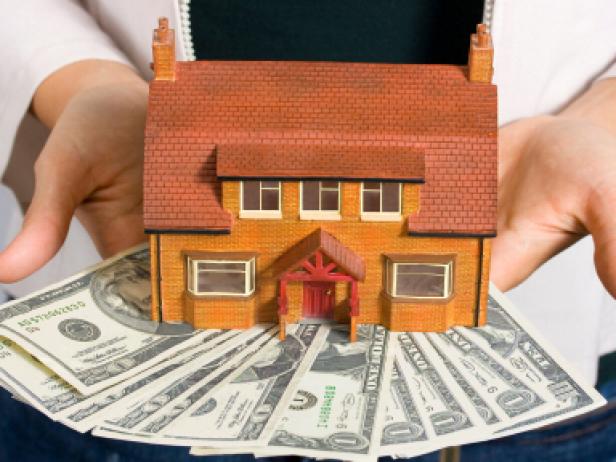Real Estate Investing

If you got your real estate information from reality TV and infomercials, you'd think all there was to being a real estate investor was fixing and flipping, then flaunting the cash you just made, or buying a rental property with *No Money Down!* then letting your serfs, I mean, tenants, pay your way to everlasting riches and unlimited fabulosity.
That's not exactly how real estate investing works. (Sarcasm intended.)
Fabulosity isn't free. Part and parcel of being an investor and {RE}Thinking Real Estate is getting face-to-face with the math that must be done to project whether any particular investment will be profitable or painful, financially speaking, and doing it right. In fact, part of what we do at {RE}Invest - the real estate investment consultancy powered by {RE}Think Real Estate - is to do the math for and with our clients, making sure that no foreseeable line item expense goes unaccounted for in the pro formas (projected cash flow and financial analyses) that we do before our clients purchase any investment property.
When I see real estate investors come into {RE}Invest as either novice investors excited about a potential investment opportunity or as experienced real estate investors looking for assistance in analyzing and managing their portfolio of real estate investment properties, there are about 5 very common line items that many of them have completely overlooked.
1. Carrying costs. Carrying costs are simply the costs attached to owning a property, namely:
- Mortgage payments;
- Property taxes;
- Insurance;
- Owner-paid utilities, and (for rental properties);
- Management costs (if you pay a manager or tenant finder);
- Vacancy expenses (i.e., the amount your occasional vacancies will "cost" you, depending on how much time your rental unit(s) spend vacant);
- Maintenance costs (e.g., gardener, snow removal, property repairs and upgrades); and
- Business license fees & taxes (if applicable in your town).
If you're trying to fix-and-flip a house, you need to account for the amount of carrying costs you'll need to pay during the construction/rehab period. If you are holding a property for rental, you'll need to make sure you have clarity on the dollar amount of your monthly expenses before you can know how the incoming rents will impact your cash flow.
2. Closing costs. A.k.a. transaction costs, closing costs are simply the price you pay to do business as a real estate investor. When you buy or sell a property, there are inescapable costs attached to all the products (mortgages, title insurance policies, homeowner's insurance policies) and services (of the Realtors, mortgage brokers, attorneys, escrow/closing agents, inspectors) you use in the course of consummating the transaction. If you are purchasing the property, and you elect to pay your property taxes and hazard insurance through your lender with an impound account, your closing costs will include a few months' worth or more of prepaid property taxes and insurance. And, last but not certainly not least, many cities and counties impose transfer taxes - a *special* tax that is imposed on every sale/purchase of real property within that jurisdiction. Closing costs vary based on your jurisdiction and the purchase/sale price of the property, but generally buyers should estimate closing costs to be around 3 percent to 5 percent of the purchase price of the property, while sellers should expect their closing costs to run about 7 percent to 10 percent of their sale price. If you are investing in real estate using a 1031 exchange strategy, you are buying and selling simultaneously, and stand to incur an additional 1 percent (approximately) in the costs associated with effecting the 1031 exchange (intermediary and CPA fees).
You can see how, if you want to rehab houses for quick resale or even buy, hold and sell rental properties, you need to factor closing costs into the costs of your fabulosity.
3. Commissions. As much as Realtors and mortgage brokers love their clients, we are in this business to make a living. I find that, increasingly, real estate consumers are very cloudy on the matter of exactly how these professionals get paid. Realtors and mortgage brokers only get paid when the transaction closes, but their commissions are part of the standard closing costs -- which either or both the buyer and/or seller must pay. Generally, the seller pays the big one -- the Realtor commissions -- which are about 5 percent to 6 percent of the purchase price (that amount gets split between the two Realtors). Also generally speaking, the buyer pays the much smaller commission, a.k.a origination fee, to their own mortgage broker -- usually in the range of 1 percent of the purchase price. No matter how simple the math seems on those reality shows, know that if you fix and flip a house, you need to subtract 6 percent of your hoped-for eventual sale price off the top for your Realtor commissions, before you project your profits. It can make the difference between a deal penciling out as profitable or not, but you don't want to skimp on the commissions - the only way to get top dollar for your flip property is to make sure all the Realtors bring their clients to see it, and they will never show your place if there is a low or no commission being offered.
4. Capital Gains Taxes. Real estate investing is chock full of tax advantages compared with other investments; nevertheless, the tax {wo}man cometh. I won't go into excessive detail, but when you sell an investment property for more than the total of what you paid for it and invested in it, that "profit" is called capital gains. Capital gains are taxes at the rate of about 15 percent. Yep, 15 percent of every dollar you make goes to the good ole' US of A. With that said, if you are simply trading up - cashing out the equity from one rental property to purchase a bigger or more valuable one - you should research the feasibility and guidelines for deferring your capital gains taxes in a 1031 Exchange. But all you flippers out there should make sure you have a sound tax strategy in place, or sufficient profits in the pipeline, to cover the capital gains tax exposure you create when you dramatically increase the value of your property in a short period of time for resale.
5. Common Sense. It's called *real estate investing*, not MAGIC. There is no such thing as a magic money machine that begins spurting thousands of dollars at you once you buy an investment property. Sounds basic, but if I had a dollar for every otherwise savvy homebuyer who forwarded me an email or Web link to some get-rich-quick scheme where they pay a guy in a glittery suit for the opportunity to make $100,000 per year using no money, no effort, no credit, no nothing of their own, I could probably fund that money machine myself! Managing a real estate investment portfolio takes work - real estate is one of the most lucrative investments around, but the flip side is that it is one of the least passive investments around, too. Finding and maintaining tenants and/or property managers, dealing with vacancies and contractors, even simply finding profitable properties and creating and managing the financials for them - investment properties require money to buy and/or maintain, and energy to keep running successfully on a short- or long-term basis. No money down doesn't mean no money required - someone has to pay the mortgage, property taxes, maintenance costs, etc., and often the high interest on low-down payment mortgages makes the payment high enough that rental income may not cover all the expenses. Not always, but often.
I'm not one to avoid complex deals just because they might be complex, but you really should be able to understand the fundamental story underlying the potential profits of a deal before you do it. Also, ask the hard questions - no matter how basic or suspicious they may seem. If the deal can't withstand your questions, then it can't withstand the market, and it doesn't deserve your money/time/energy/effort, etc.
These are the most commonly ignored expenses that burst the fantasy bubbles of real estate investors. My goal is not to burst bubbles, but rather to inject reality into the calculations so that no nasty surprises come at my real estate investors after they are in the property - especially no surprises that I could have predicted. And I am always reminding them that, yes, our analyses are very tough on properties and investment scenarios. However, if a property passes our scrutiny, after all line items are considered, it's probably a reaaaaallly good one or really well suited for that client's needs. In this respect, real estate investing is like dating - selectivity is key.
When a prospective investor has inadvertently omitted a line item (or several) before purchasing, the worst case scenario is disappointment when they have to reduce their projected paper profits. When an actual investor buys a property without considering a line item, the worst case scenario is negative cash flow beyond what they can bear, resulting in a forced sale or foreclosure. Bad news. Don't be a victim of real estate hype - be a savvy investor and do the math (or ask us to help you with the math), all of the math, including the 5 C's.














































